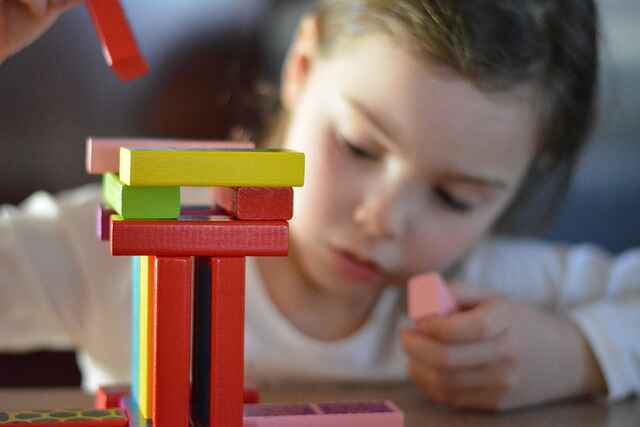Attention Deficit Hyperactivity Disorder or ADHD is a neurodevelopmental condition that affects millions of children worldwide, impacting their attention, impulse control, and hyperactivity levels. As parents, educators, and caregivers, it is essential to gain a deeper understanding of ADHD to provide the support and compassion these children need to thrive.
Without further adieu, let’s explore the characteristics of children with ADHD, shed light on their experiences, and discuss strategies to create a nurturing and inclusive environment that celebrates their uniqueness! (Source)
Also, Read Know about PTSD in Kids and Teens: Complete Coping Mechanism
1. A Symphony of Encouragement!
Children with ADHD often crave positive attention and encouragement. Because of their impulsive nature, they may engage in behaviors that seek immediate gratification. Positive reinforcement gives them motivation to repeat desirable actions because they feel recognized and appreciated.
How do children feel?
When children receive positive support, they feel valued and proud of their achievements. It boosts their self-confidence and increases their sense of self-worth. Acknowledging their efforts and achievements fills them with a sense of joy and encourages them to strive for success.
Offer them praise and encouragement for their efforts and achievements. Recognize their hard work, no matter how small the success may seem. Implement a reward system with a chart or point system where they can earn rewards for completing tasks or showing positive behavior. Celebrate their progress and efforts to build a positive and supportive environment.
2. Loving Boundaries: Establish clear and consistent expectations!
ADHD often makes them struggle with impulse control and may have trouble following rules consistently. They can be overwhelmed with complex instructions, leading to confusion and frustration.
How do children feel?
When expectations are unclear, children with ADHD may feel anxious and unsure of how to behave. Inconsistent boundaries can cause them confusion and even fear of consequences because they may not fully understand what is expected of them.
Set clear and simple expectations for their behavior. Use positive language to outline what you want them to do rather than focusing on what you want them to avoid. Consistently reinforce the rules and gently remind them when they need guidance. Give them a structured and predictable routine to help them feel more secure and reduce anxiety.

3. The Magic of Visual Aids:
The struggle with organizational skills, memory, and time management for them is real. They may have difficulty remembering tasks and staying focused on daily routines.
How do children feel?
They may feel overwhelmed and stressed when trying to remember tasks or follow routines. This can lead to frustration and feelings of inadequacy as they can see how their peers manage everyday responsibilities effortlessly.
Usage of visual aids such as plans, charts, or checklists to give them visual cues and reminders. Create a colorful and engaging display of their daily tasks, routines, and responsibilities. Visual aids help them stay on track, reduce anxiety, and promote a sense of accomplishment when they complete each task.
4. Time Wizards: Mastering the Art of Time Management:
Children with ADHD often struggle with time management and may lose track of time, leading to difficulty meeting deadlines and transitioning between activities. Struggling with time management, kids can feel overwhelmed, stressed, and disorganized. They themselves may experience frustration and disappointment at not being able to keep up with time-limited tasks.
Teach them time management techniques, such as using timers or alarm clocks. Set a timer for each activity or task to help them understand the duration and plan their time more effectively. Show them how to prioritize tasks and break them down into manageable segments to improve focus and time allocation.
5. Breaking down tasks into manageable steps:
It is a big challenge to tackle large tasks or projects due to difficulties with organization and planning. Feeling overwhelmed and discouraged when faced with important tasks, leading to avoidance or procrastination is common. Fear of failure can cause them to hesitate to start or complete tasks.
What you can do to help? Help them by breaking down big tasks into smaller, achievable steps. Provide guidance and support as they work every step of the way and celebrate their progress along the way. Encourage them to take one step at a time, building their confidence and fostering a sense of achievement.
6. Energize and Empower:
These kids often have high energy levels and may have trouble sitting still for long periods of time.
How do children feel?
They may feel restless and restless when they need to focus on quieter activities. Suppressing their energy can lead to frustration and difficulty concentrating. Include regular physical activity in their daily routine. Get involved in fun activities like playing in the park, riding a bike, or having a dance party at home. Physical activity helps them release pent-up energy and improves concentration.
Also, Read Know about Autism: Complete Guide to Autism Care and Treatment

7. Emotional Ninjas- Teaching Self-Regulation Skills:
Why it happens: Children with ADHD may have trouble managing their emotions and impulses, leading to problems with emotional regulation.
How do children feel?
When emotions become overwhelming, they may feel out of control, leading to frustration, anger or even sadness. Difficulty managing emotions can lead to negative social interactions and affect their self-image. Teach them self-regulation techniques like deep breathing exercises or counting to ten when they feel overwhelmed.
8. The importance of a consistent sleep routine
ADHD teenagers and kids may have trouble falling asleep or staying asleep, leading to tiredness and difficulty concentrating during the day. Further, poor sleep can make them tired, irritable, and have trouble concentrating. They may experience mood swings and have difficulty managing their emotions.
Create a calming bedtime routine and set regular bedtimes and wake-up times. Create a soothing sleep environment, limit screen time before bed, and promote relaxation. A consistent sleep pattern promotes better focus, mood and overall maintaining good mental health too.
Understanding and implementing effective discipline strategies for children with ADHD can make a world of difference in their daily lives. As parents and guardians, simply by keeping ourselves in their shoes and mere kindness can light up our young one’s whole life!





